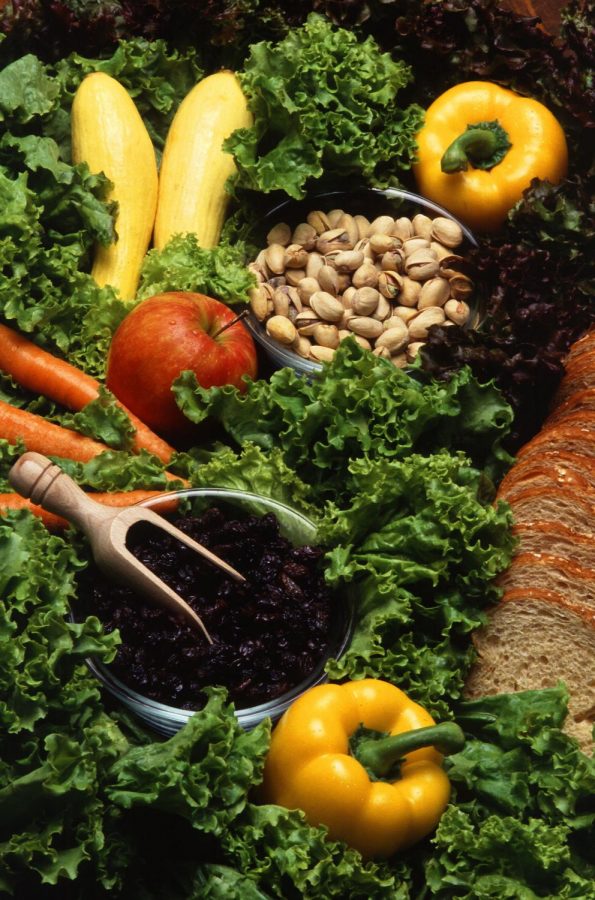Becoming Vegetarian
March 6, 2020
Vegetarianism– the practice of abstaining oneself from eating any kind of meat. You may have heard quite a few people aiming to convert to becoming vegetarian, potentially even being on the list of people’s New Year’s Resolutions. This may be due to many different reasons. While being vegetarian has long been due to religious and sentimental purposes, the recent switch has prominently due to health and environmental risks that are posed by different types of meat. Here are a couple statistics to give a general overview of the impacts of meat production:
- Approximately 20-50% of manmade greenhouse gas emissions comes from livestock farming, which includes the production of meats such as lamb, beef, pork, turkey, chicken, etc.
- It takes approximately 1800 gallons of water to produce a pound of beef; in comparison it takes only about 216 gallons of water to create a pound of soybeans
- Meat can lead to the spread of a variety of different pathogens/diseases, such as salmonella and campylobacter
Due to some of these facts & statistics, some fast food chains have also recently started implementing veggie burgers into their menus. A few examples include Burger King’s Impossible Burger, TGI Friday’s Beyond Burger, and White Castle’s Impossible Slider. These burgers consist of patties that look and taste very similar to beef, but instead they are entirely plant-based.
While people believe that going vegetarian is an ingenious idea, and some even agree with going vegan– having a completely plant based diet, there are many who believe that eliminating meat from a diet is senseless.
“Vegetarianism, unless for religious or health reasons, is dumb. Why eliminate completely something that contributes so much to your health: meat? Let’s be real: veggie food definitely doesn’t taste as good as more traditional food and really doesn’t improve health all that much.”
In contrast, there are people who concur that vegetarian diets are still wholesome and can still include all parts of the food pyramid:
“Vegetables provide all components of nutrients necessary to live a sustainable life; on the other hand, meat provides very few protein along with a vast amount of carbohydrate and fat, which is unhealthy.”
These contrasting views provide an opportunity for a riveting clash on this topic, with everybody conformed to their own beliefs.
One statement that all non-vegetarians, including myself, can universally agree upon: Meat is absolutely delicious. But if we really dwell into recent research that has been found, it is conclusive that meat poses a lot of environmentally damaging impacts. While eating only veggies may be deemed my many as dull, this practice might have to become a norm as air pollution and greenhouse gas emissions increase.



